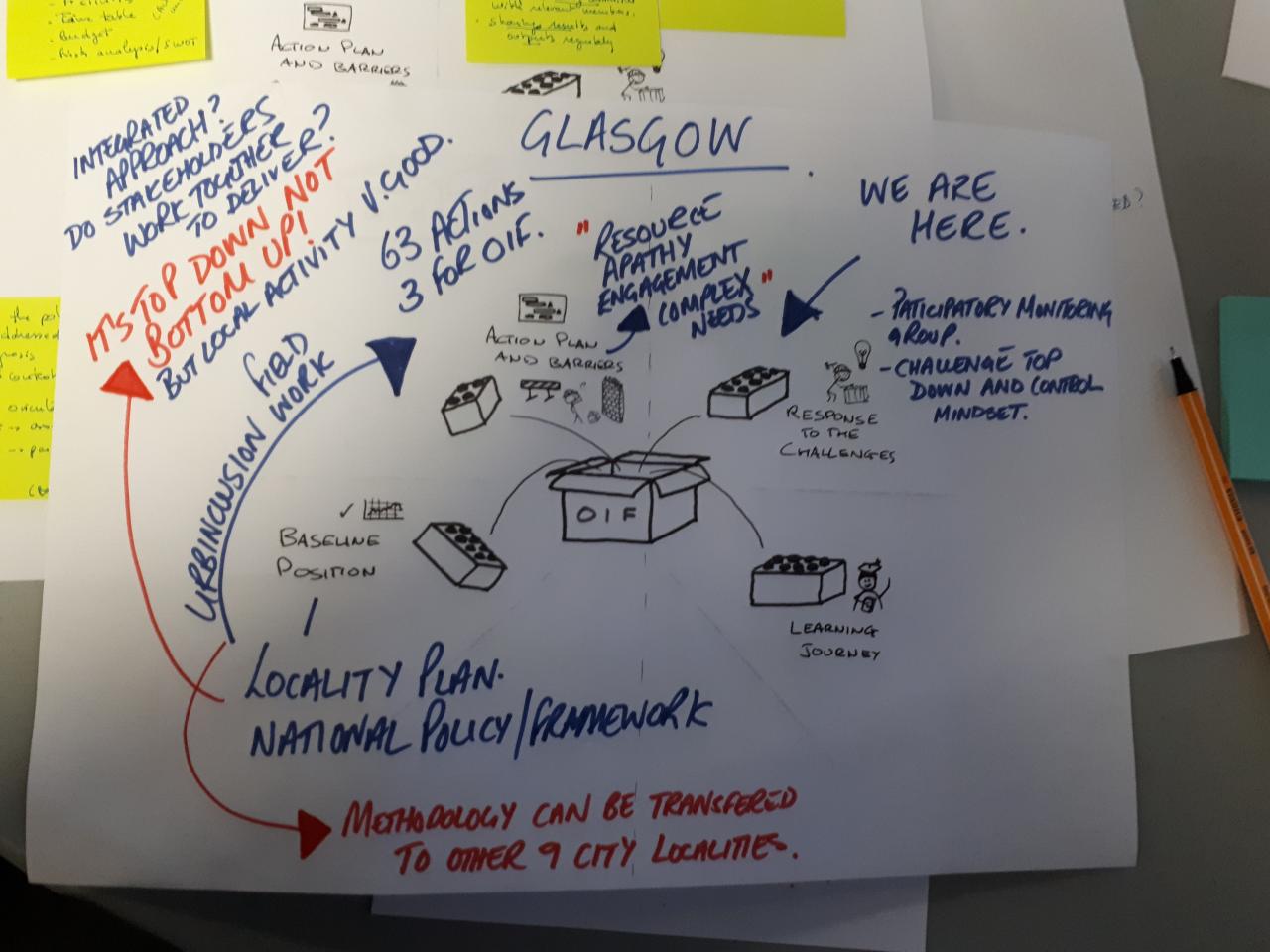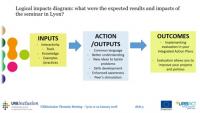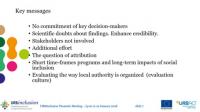
It was organized in a way to get concrete feedbacks on different key points concerning the plans, and it was also an opportunity for cities to ask peers from other networks for advice and examples.
The session was organized around 4 main points – ‘THE FOUR Cs’:
- Completeness. Checking that all the parts have been considered
- Coherence. Does it all seem plausible and realistic? Is it likely that completing all the actions will lead to the desired results? Does the budget and resource for each action seem appropriate?
- Concerns. Listing the things that still need some attention.
- Continuation. The next steps for the reviewed city.
A specific session was focused on “The Operational Implementation Framework (OIF). The following questions were highlighted: What is this key local output? What format should it take? How should it be developed and used? And when should it be drafted?
The OIF is essentially a way of illustrating what the city did, how it overcame the implementation challenges and describing the journey along the way. It will provide a framework for tackling future projects. The end version of the OIF will be a description of what challenges were faced and the approach used to overcoming them (successful or not; complete or not).
The OIF does not need to be in a set format, but does need to include certain information in a way that can be compared and used with OIFs from other cities.
OIF Contents
Introduction & Context
- Local assessment of baseline position
What Capabilities do you have locally (tools, methodologies, skills)? And how do you use those capabilities in implementation projects?
- Outline Implementation Plan
- What the Implementation Challenges mean in practice for your city
Response to the Implementation Challenges: How you plan to overcome the Challenge (in the final version this will become how you overcame the challenge, or tried to – success is not a prerequisite)
- Where do you need to develop (new) capability/capacity? Where will you use existing capability?
- Learning Journey
What works or doesn’t work and WHY?
- What do you learn from others?
- What do you learn from your own (local) experience / practice?
Synthesis of this – which forms the basis for a future delivery approach or framework
- Synthesis
So what… what does all this mean for your city?
Drawing out the most important parts of the Delivery Approach cities took to overcome the challenges, looking at how they were tackled in practice and what skills, methods, tools the city used in order to do so. What will this mean for the future? What have each City learnt and what may be relevant to other cities.
The final session was focused on the implementation Challenge IC 3:
Setting up efficient indicators and monitoring systems to measure performance. Objectives should be S.M.A.R.T.: Specific, Measurable, Achievable, Relevant, and Time-bound.
Monitoring implies a systematic collection of data about implementation of the action plan. Performance management is about using performance monitoring information to improve action plan implementation and Evaluation entails an independent analysis of performance and achievements of the action plan.
A presentation of the Thematic Seminar held in Lyon within the URBINCLUSION network focused on Monitoring and Evaluation was presented as an example of sharing knowledge within a network.


